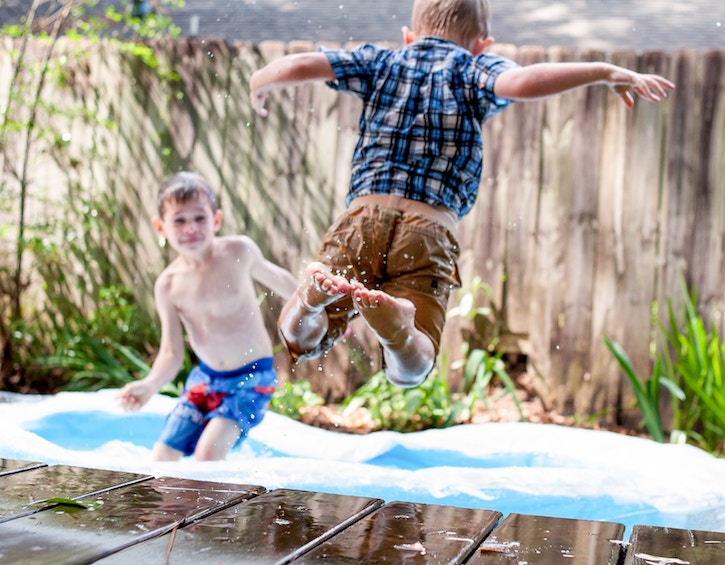
If there is one thing that makes me count down to bedtime it’s the kids fighting! It has to be one of the most frustrating aspects of being a parent.
I suspect I’m not alone; data shows that kids between the ages of 2 years to 9 years average eight disputes an hour, each going for roughly 45 seconds. That equates to about 10% of the time together fighting! More if you factor in extra siblings. Most parents feel at a complete loss as to how to deal with these scuffles, too.
Should you intervene? If so, what should you do? Turns out, there is a lot of research on the matter. Below I outline some of the key takeaways for us to help us stay sane and manage the constant battles!
Is sibling conflict so bad?
Yes and no! Siblings play a critical role in children’s development of interpersonal skills (e.g. empathy), their emotional regulation, behaviour, and mental and physical health. It follows that children who have experienced high levels of negative sibling conflict show poor mental and physical health outcomes. We don’t want to eliminate or avoid sibling conflict altogether. Constructive conflict is important as can help our kids develop effective conflict management skills, help them tolerate negative feelings (e.g. being okay with feeling sad or angry), and build social problem-solving skills.
Should we intervene?
Yes! Parents intervening in a way which helps the child navigate the conflict more constructively helps reduce sibling fighting and leads to warmer and more cohesive sibling relationships. It also leads to better outcomes for each child in terms of how they feel about themselves, better physical health, and better individual social and emotional development. This is particularly the case when kids are little and don’t have the emotional or social skills to navigate sibling battles.
Although the old adage is to “leave them to sort it out for themselves”, research shows that ignoring the fighting, or endorsing some form of conflict (e.g. encouraging them to hit back), leads to more fighting, a worse sibling relationship, and more negative health outcomes for our kids (both physical and mental health). This is also true for intervening in a way which shuts down the conflict (e.g. “cut it out”) or punishing them for having conflict.

How can we improve sibling relationships?
Every day strategies
- Treat each child equally: if kids suspect favouritism, they’ll often try and square things up themselves! Treating your kids fairly won’t eliminate conflict, but playing favourites will increase it so it is worth keeping in mind.
- Watch how you fight: research shows that children fight like their parents! We all hate to argue in front of our kids, but if you do, try and do it in a way that you don’t mind being copied (easy to say, I know!).
- Introduce systems that prevent regular fights: if there are regular battles that take place in your household, look for ways to fairly split the sought-after thing. For example, could you assign odd and even days for who gets to ride in the front seat, push the lift button, choose the music… the list is endless!
- Prioritise some family fun time: improving sibling relationships isn’t just about removing conflict. Focus on trying to build a more positive bond and create happy shared memories by getting them to have fun together.
“In the moment” strategies
Rather than seeing sibling fights as something just to endure, try and view them as an opportunity to help your kids build good conflict management skills, and their social and emotional skills (e.g. empathy) more broadly. It is unrealistic to think we will respond in a constructive way to every sibling dispute. But, keep these principles in mind, mama, and when you do have the time, energy, and composure, try to intervene in sibling conflict in a way that:
- Acknowledges and shows empathy for the feelings of each child: e.g. “Yes, it can be really annoying when Jack takes your toy /knocks down your tower, etc.”
- Encourages each child to see the perspective of the other: e.g. “Jill, I think Jack took your toy because it’s the new toy and he wants to play with it too. Can you understand him wanting to play with it?” and “Jack, Jill is upset because she was playing with the toy and you snatched it. You would probably get upset if that happened to you too, wouldn’t you?”
- Provides each child with an alternative way to respond in future: Children need help working out appropriate ways to be assertive and defend themselves. e.g. “Jack, next time you want to play with something that Jill has, perhaps you could ask Jill.”
- Shows no tolerance for violent behaviour: while it is important to use sibling disputes to teach positive social behaviours, it is also important that you protect both children and make it clear that physical aggression is not okay.
- Encourages collaborative problem solving: help them to come up with a fair solution together. E.g. “Given you both want to play with this toy, what should we do?” If they struggle to come up with a solution you could suggest something and ask for their thoughts. e.g. “What if you each had a turn with the toy?” Children often don’t want to adopt a fair solution (i.e. they want the toy all to themselves!), so you may need to enforce a fair solution.
Note: the concept of sharing is abstract and difficult for small children to understand. At young ages, it is better to stick with turn taking as it is more concrete and clear-cut.
While these steps above may sound like a lengthy and exhausting process, it only need take two to three minutes. We’re never going to eliminate sibling conflict, nor do we want to. However, using some of these tips could help reduce the level of conflict overall, develop a warmer sibling relationship and positive well-functioning relationships across your kids’ lives.
 View All
View All











 View All
View All





 View All
View All


 View All
View All











